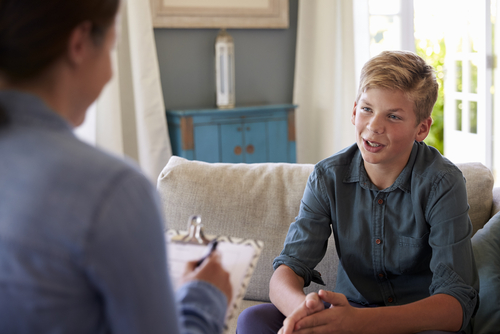Many people with alcohol use disorder don’t know, or don’t want to know, how their drinking affects others. Addiction doesn’t only affect you, but your family and friends too. One of the most common reasons people decide to get help is because their substance use is damaging their relationships, especially with their families. Children are the most vulnerable to the negative effects of a parent’s excessive drinking. Children are relatively helpless and their brains are still developing. As a result, they feel the consequences of a parent’s drinking more than most parents can imagine. Here are some of the ways your alcohol use might be affecting your children.
You lose your temper more.
Alcohol lowers your inhibitions by weakening the brain’s prefrontal cortex, which is responsible for self-control and emotional regulation, among other things. Children can often test the patience of the most sober and well-rested parents. If a child makes you angry when you’ve been drinking, you are far more likely to lose your temper. You can’t pause to reflect that your child doesn’t know any better or that she doesn’t have the physiological ability to do–or keep herself from doing–certain things. When you lose your temper frequently, your child learns to fear you. She may become anxious or depressed in general and have a greater risk of developing mental health issues later in life.
They learn from your behavior.
Another problem is that kids learn a lot more from what you do than from what you say. If your child sees you drink a case of beer every night, she grows up thinking that’s normal. Having a parent with addiction is one of strongest predictors of developing addiction later in life. Much of that risk is genetic, but some of it is also learned behavior. If you don’t want your children to learn addictive behavior, the best thing you can do is get help for yourself.
Children need structure.
Kids need a certain amount of structure to feel safe and cared for. They younger they are, the more structure they need. This includes regular bedtimes, regular mealtimes, getting to school on time, and so on. Studies have even found that regular structure can even protect kids from some of the the effects of a parent’s addiction. However, drinking excessively makes it very hard to provide structure for kids. You might wake up late, you might be unable to drive, you may be out of the house a lot, and you may pass out, leaving your kids to fend for themselves. Kids can end up feeling neglected and anxious. Sometimes the oldest child will take over the role of parent for her siblings, which has psychological costs of its own.
Children are scared when they see you argue.
Just as alcohol makes you lose your temper with your kids, it also makes you lose your temper with your partner, especially if your partner doesn’t like your drinking. Seeing parents fight makes children feel unsafe. Just as if you were losing your temper with them, fighting with your partner increases your kids’ risk of anxiety and depression.
Arbor Behavioral Healthcare offers an integrative and holistic approach to treat substance abuse and a wide variety of addictions, as well as underlying mental health and psychological issues. All of the addiction recovery programs offered by The Arbor are designed to heal the mind, body, and spirit leading to a lifetime of sobriety, health and wellness. If you’re ready to find healing and restoration in a peaceful, loving environment, please call us today at 844-560-7269.


